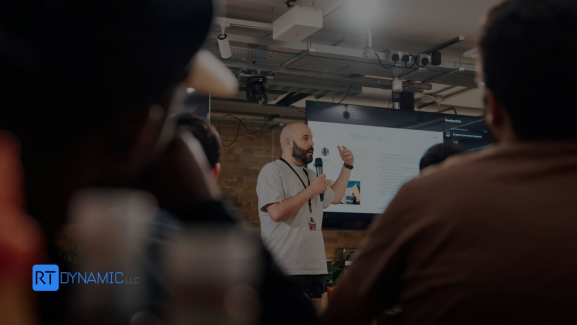Child welfare agencies face a serious information crisis. Caseworkers often juggle scattered records, outdated files, and inconsistent reporting. This slows decision-making and can put vulnerable children at risk.
Agentic AI is emerging as a game-changer for public sector teams. By automating data processing and pattern recognition, it helps caseworkers access accurate insights quickly. In a field where timely action saves lives, AI is no longer optional but essential.
Its ability to unify child welfare data across systems empowers teams to see the full picture. From intake to ongoing monitoring, Agentic AI ensures that critical information isn’t lost in silos. This foundation sets the stage for smarter interventions and better outcomes.
Key Takeaways
- Enhanced Efficiency: AI reduces time spent on manual data entry and record-keeping.
- Improved Accuracy: Automated processing minimizes errors in child welfare records.
- Data-Driven Decisions: Caseworkers gain actionable insights from unified, real-time data.
- Streamlined Workflows: AI supports faster intake, monitoring, and follow-ups.
- Empowered Caseworkers: Access to comprehensive data helps prioritize interventions effectively.
Empowering Caseworkers with a Cohesive View
Agentic AI brings together scattered child welfare data from multiple sources into one unified platform. This consolidation ensures caseworkers no longer waste time searching through disconnected systems.
With a cohesive view, caseworkers can monitor cases, track outcomes, and identify at-risk children more efficiently. It enables proactive interventions and better decision-making, improving overall child welfare services.

Streamlining the Critical Intake Process
Agentic AI automates the intake workflows, allowing caseworkers to process new cases faster. This reduces the time spent on repetitive administrative tasks and manual data entry.
By minimizing human errors, AI ensures accurate records from the start, improving case quality and compliance. Caseworkers can focus more on children’s needs rather than paperwork.
Driving Systemic Change Through Pattern Recognition
Agentic AI analyzes large datasets to identify risk patterns and emerging trends in child welfare. This helps agencies detect high-risk cases earlier and allocate resources effectively.
By highlighting potential issues proactively, AI supports informed decisions and timely interventions, improving overall child protection outcomes.
Real-World Impact: A Texas Boomtown Case Study
The city of Kyle, Texas, has become a notable example of how AI can transform public service delivery. In March 2025, the city implemented an AI-driven 311 system powered by Agentforce, Salesforce’s AI platform for the public sector.
This system unified various public-facing services, allowing residents to report issues like potholes, broken streetlights, and water leaks through a single mobile app. The integration of Agentic AI enabled the city to analyze constituent complaints, identify trends, and provide real-time updates on service requests.
Since the launch, the city has processed over 12,000 service requests, with nearly 90% of users receiving resolutions during their first contact. The average response time has been reduced to under 2.5 days, nearly double the speed initially anticipated.
This efficiency has not only improved resident satisfaction but also resulted in cost savings by minimizing waste and inefficiencies.
Salesforce
The success in Kyle demonstrates the potential of Agentic AI to streamline public service operations, enhance responsiveness, and deliver measurable improvements in community services.

Future Outlook: Expanding AI in Child Welfare
The success of Agentic AI in Kyle highlights its potential beyond city services. Agencies can adopt AI tools to improve child welfare case management, support families, and optimize resource allocation.
- Expanded AI Adoption: Other municipalities and child welfare agencies can implement AI for intake, monitoring, and reporting.
- Improved Decision-Making: AI-driven insights help caseworkers identify risks and prioritize interventions effectively.
- Operational Efficiency: Automation reduces administrative burden, allowing staff to focus on high-impact tasks.
- Enhanced Family Outcomes: Proactive insights lead to faster support and better protection for children.
- Community Impact: Streamlined processes improve transparency, trust, and overall public service quality.
FAQs on Agentic AI in Child Welfare
What is Agentic AI in child welfare?
Agentic AI is an artificial intelligence tool designed to help child welfare agencies manage cases efficiently. It consolidates scattered data, provides insights, and supports proactive decision-making for caseworkers.
How does it automate child welfare data management?
It automates intake, record-keeping, and reporting processes, reducing manual work. Caseworkers can quickly access accurate, up-to-date information without repetitive tasks.
Can AI reduce human error in case monitoring?
Yes. By analyzing patterns and tracking case updates in real-time, Agentic AI minimizes mistakes and ensures critical data isn’t overlooked.
How does pattern recognition help prevent child neglect?
AI identifies risk patterns, trends, and anomalies in cases. This helps agencies intervene proactively before situations escalate.
Is AI adoption in child welfare secure and ethical?
Agentic AI follows strict data privacy and security standards. Ethical guidelines ensure responsible use, protecting sensitive information while supporting better outcomes.



